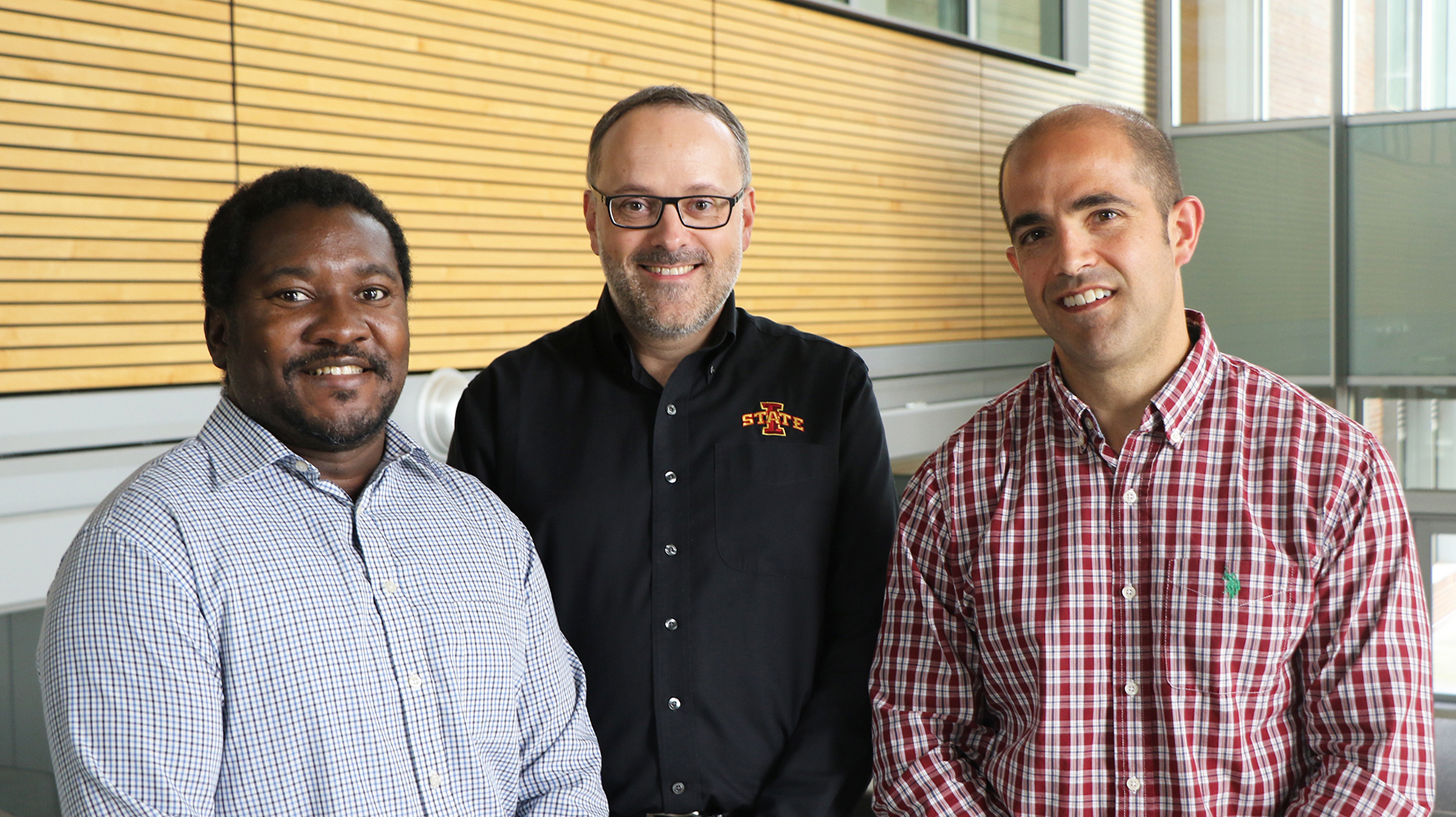Greener hydrogen fuel production – with a solid carbon bonus
Author: Cyclone Engineering
Author: Cyclone Engineering
 Cyclone Engineers are joining forces in a $4 million project to make hydrogen fuel production more environmentally sustainable.
Cyclone Engineers are joining forces in a $4 million project to make hydrogen fuel production more environmentally sustainable.
In a project led by University of Oklahoma, Jean-Philippe Tessonnier, Richard C. Seagrave Professor and associate professor of chemical and biological Engineering (above, center), and Eric Cochran, Mary Jane Skogen Hagenson and Randy L. Hagenson Professor in Chemical and Biological Engineering (above, right), and Mark Mba-Wright, associate professor of mechanical engineering (above, left), will contribute key expertise to the research questions of how to bring together Oklahoma’s renewable methane with Iowa’s renewable biomass to create better ways of producing hydrogen energy – and how to best use the solid carbon byproduct created in the hydrogen harvesting process.
Tessonnier brings expertise in materials chemistry, catalysis, and biomass conversion to tailor the surface properties of the produced carbons depending on their end uses.
“This project leverages Iowa State’s expertise in biomass and biorenewable chemicals to develop performance carbon materials for applications ranging from composite materials like those used for wind turbines to water filtration systems. But as carbons are a key material in batteries, we are also thinking about other applications in clean energy,” said Tessonnier.
Cochran will use his extensive experience in polymer chemistry to optimize the thermodynamics, transport, and reaction engineering processes.
“One of my roles in the project is to look at how some of this carbon could be made in such a way that it could be blended with plastics to make them stronger and lighter.” said Cochran. “That’s a huge opportunity to develop new uses for a material that would be produced in great abundance from hydrogen harvesting.”
Mba-Wright, an expert in energy systems analysis, particularly in the area of biomass, will investigate the design of thermal systems and evaluate their effectiveness in terms of carbon and energy efficiency among other metrics.
“This project presents a unique opportunity to leverage Iowa’s and Oklahoma’s strengths in carbon and renewable energy. The innovations from this project could lead to novel collaborations towards the commercialization of high-value hybrid carbon products that are both economic and sustainable,” said Mba-Wright.